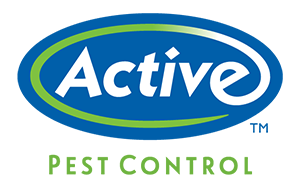As the weather warms in Georgia, we’re approaching the start of mosquito season. These blood-sucking pests are waking up from hibernation, and they’re traveling to look for hosts to feed off of
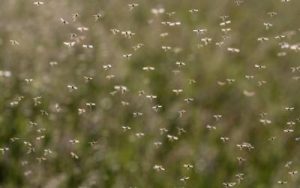
and places fit for breeding. There’s nothing worse than swarms of mosquitoes rendering your yard inhospitable – but what can you do?
Some hesitate to call a professional mosquito exterminator, especially when there are so many do-it-yourself solutions being advertised online. Unfortunately, some of these answers may not be as effective as they claim. The experts at Active Pest Control are here to go through some of the most common strategies and tell you for certain whether or not they’re worth pursuing.
DIY for Mosquitos: Life Hack or Wack?
There are a variety of DIY mosquito treatments on the market that claim to eradicate these pests without the need or cost of an exterminator. But in many cases, these products are not nearly as useful as advertised – if at all. Take the mosquito-repelling bracelet for example, a wristband infused with essential oils and other natural ingredients supposedly meant to deter the bugs. In actuality, one study shows that these bracelets are only effective to a radius of a few centimeters.
This example creates a pattern that reflects onto a majority of home pest strategies. When asking if DIY pest control work, the answer is usually that it is:
- Applied incorrectly
- Not strong enough
- Still providing nesting spots
Mosquito Control that Works
There are certain forms of mosquito repellant that can work to a certain extent. It’s true that there are some scents, like Citronella, that mosquitoes don’t like. So if you plant the herb around the home or light a few quality candles made with the oil, you may lessen the presence of mosquitos around your property.
While it’s not possible to remove all sources of standing water from your home, clearing out buckets, bird baths, and other larger surfaces will go a great distance in preventing mosquitoes from breeding. You can also go the extra mile and keep a few box fans running on your patio, or wherever else you plan on spending time outdoors. The constant current of air is not only pleasant on a hot day, but it also deters mosquitoes and other bugs from landing and getting comfortable in your space.
These will help create an environment that mosquitoes won’t be attracted to, but it won’t do much to help an infestation that’s already spreading. So in that way there’s no question about it: if you want thorough mosquito removal in Georgia, you need the help of a trained professional.
Active Pest Control for Mosquito Exterminators in Georgia
When it comes to a pest as pervasive and potentially hazardous as the mosquito, there’s no such thing as being too careful. The expert technicians at Active Pest Control have been eradicating mosquito infections for 45 years, and we can use our ongoing training to provide the highest quality of service possible. DIY mosquito killers are a nice thought, but often too good to be true, and certainly not worth wasting money on. Instead, trust Active Pest Control to get rid of your pest problem for good. Contact us today to get started!

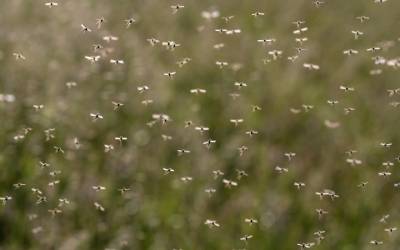
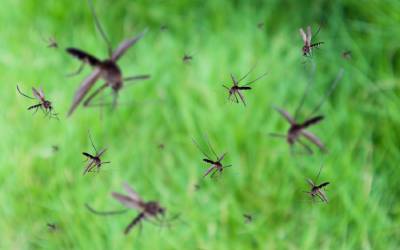
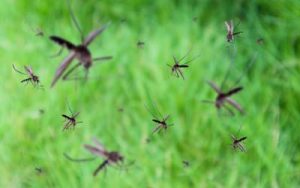
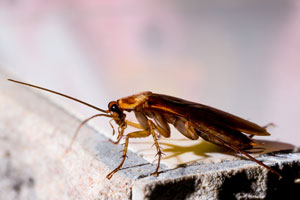 Springtime in Georgia is beloved, but seasonal allergies can be a serious pain. Millions of people suffer from stuffy noses and itchy eyes every year. However, what if it’s more than the trees and blooms causing your flare-ups? Believe it or not, pest allergens are a major trigger for allergies and asthma. Some types of pests, including roaches and dust mites, can be troublesome for people with allergies. May is National Allergy and Asthma Awareness Month! The team here at Active Pest Control is committed to keeping our customers safe from all dangers of pests–allergies included. Read on to learn our top tips for preventing pest allergens in your home.
Springtime in Georgia is beloved, but seasonal allergies can be a serious pain. Millions of people suffer from stuffy noses and itchy eyes every year. However, what if it’s more than the trees and blooms causing your flare-ups? Believe it or not, pest allergens are a major trigger for allergies and asthma. Some types of pests, including roaches and dust mites, can be troublesome for people with allergies. May is National Allergy and Asthma Awareness Month! The team here at Active Pest Control is committed to keeping our customers safe from all dangers of pests–allergies included. Read on to learn our top tips for preventing pest allergens in your home.